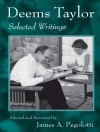This book is a critical reflection on the life and career of the late legendary Zimbabwean music icon, Oliver “Tuku” Mtukudzi, and his contribution towards the reconstruction of Zimbabwe, Africa and the globe at large. Mtukudzi was a musician, philosopher, and human rights activist who espoused the agenda of reconstruction in order to bring about a better world, proposing personal, cultural, political, religious and global reconstruction. With twenty original chapters, this vibrant volume examines various themes and dimensions of Mtukudzi’s distinguished life and career, notably, how his music has been a powerful vehicle for societal reconstruction and cultural rejuvenation, specifically speaking to issues of culture, human rights, governance, peacebuilding, religion and identity, humanism, gender and politics, among others. The contributors explore the art of performance in Mtukudzi’s music and acting career, and how this facilitated his reconstruction agenda, offering fresh and compelling perspectives into the role of performing artists and cultural workers such as Mtukudzi in presenting models for reconstructing the world.
Jadual kandungan
1. Introduction; Ezra Chitando, Pauline Mateveke, Munyaradzi Nyakudya and Bridget Chinouriri.-
Part 1: Personal Reconstruction.- 2. Oliver Mtukudzi and the Complexities of Transformative Masculinities; Ezra Chitando and Munyaradzi Nyakudya.- 3. Rebuilding the Self: Oliver Mtukudzi’s Music as Pedagogy; Gibson Ncube and Yemurai Gwatirisa.- 4. Song as Matric of Parresia: Tuku and the Quest for Truth and Democratic Ethos in Society; Tasiyana D. Javangwe.- 5. Looking for the Join: Tuku Music as a Marker of Postcolonial White Zimbabwean Identity; Shannon Morreira.- 6. Mtukudzi: The (Re)constructor? One Who Makes Others Rich?; Reggemore Marongedze and Bridget Chinouriri.-
Part 2: Cultural Reconstruction.- 7. Re-embracing One’s Culture: Lessons from Oliver Mtukudzi’s Songs; John Chitakure.- 8. Oliver Mtukudzi as a Cultural Activist: Exploring Africanness in Tuku Music; Allan T. Maganga, Chalres Tembo and Owen T. Chikara.- 9. Oliver Mtukudzi: Singing for Harmony to Heal out Land; Tariro Kamuti.- 10. Reappraising Indigenous Knowledge Systems: A Review of Oliver Mtukudzi’s ‘Sandi bonde’; Tenson Muyambo.- 11. Oliver Mtukudzi and the Rebuilding of the Lives of Orphans and Children on the Streets; Samson Mhizha.-
Part 3: Political Reconstruction.- 12. Reinterpreting Oliver Mtukudzi’s Tactical Praxis; Dube Edmore.- 13. Reading the Political Metaphor in Oliver Mtukudzi’s ‘Wasakara’ and ‘Ngomera’: Calling for Cultures of Peace in Africa; Hugh Mangeya and Ernest Jakaza.- 14. Tuku, the Political Philosopher King; Charity Manyeruke.-
Part 4: Religious Reconstruction.- 15. Resisting Foreign Intrusions: Celebrating the Spirituality of Indigenous Africans; Macloud Sipeyiye and Willian Chigidi.- 16. Music the Religion, Musicians the Priests, and the People the Congregants: The Music of Oliver Mtukudzi; Bridget Chinouriri.- 17. Spiritual Reconstruction: Oliver Mtukudzi’s Spiritual Life and his Contribution to the Methodist Church in Zimbabwe; Martin Mujinga.-
Part 5: Global Reconstruction.- 18. ‘Politics of Composition, Performance and Reception’: Interrogating the Global Appeal of Oliver Mtukudzi; Margret Chipara.- 19. Breaking Boundaries, Transcending Differences: An Intercultural reading of Oliver Mtukudzi’s Collaborative Musical Productions; Yemurai Gwatirisa and Gibson Ncube.- 20. Reconstructing the Global Order Through Ubuntu: The ethical insights in Sekuru (Grandpa) Tuku Music; Tinashe Muchuri.
Mengenai Pengarang
Ezra Chitando (Ph D) is Professor of Religion in the Department of Philosophy, Religion and Ethics at the University of Zimbabwe, and Theology Consultant on HIV and AIDS for the World Council of Churches. He researches and publishes on music, religion and culture. He is the author of Sounds of Life: Music, Identity and Politics in Zimbabwe, (2016, co-edited with Mangena and Muwati), along with numerous other publications.
Pauline Mateveke (Ph D) is a Senior Lecturer in the Department of Language, Literature and Culture at the University of Zimbabwe. She holds a Doctor of Philosophy Degree in English specialising in Gender, Literature and Music. Her research interests include popular culture and literature, gender studies and literary criticism.
Munyaradzi Nyakudya (Ph D) is a Senior Lecturer in the Department of History, Heritage and Knowledge Systems at the University of Zimbabwe. He researches on the socio-political and economic history of African societies, with a special passion for ethnomusicology, peace and security studies; education, democratization and sustainable livelihoods.
Bridget Chinouriri (Ph D) is a Zimbabwean ethnomusicologist, creative writer, culture consultant and scientist and a Senior Lecturer in the Department of Creative Media and Communications, University of Zimbabwe.












